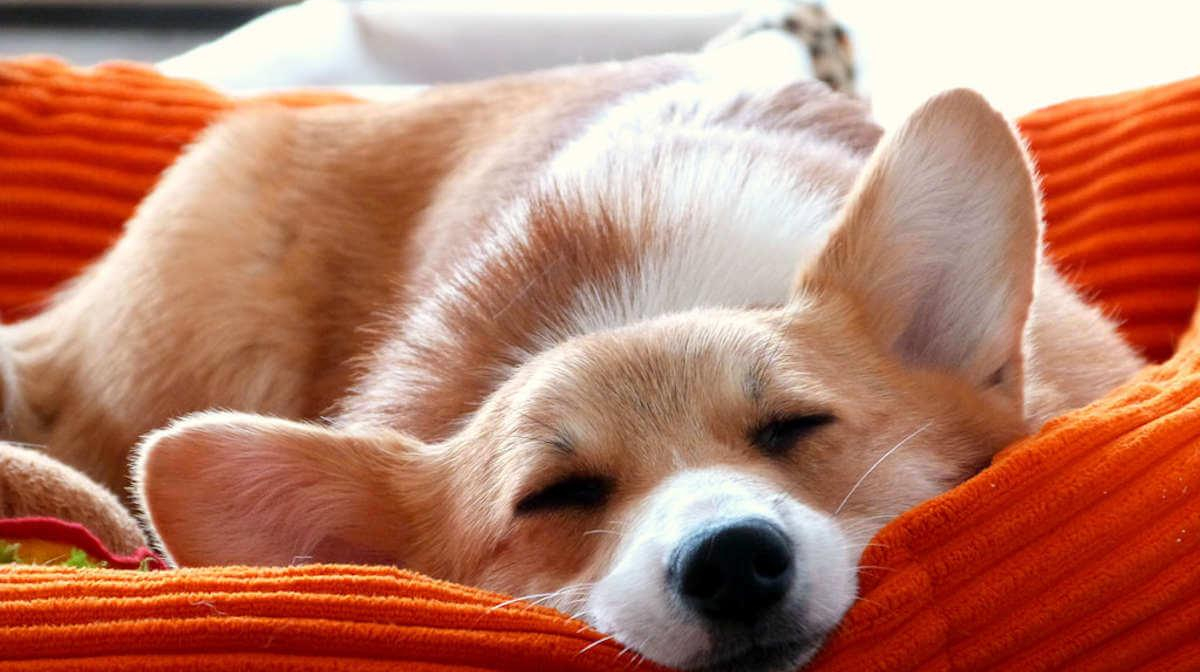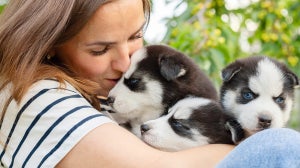
Getting a puppy can sometimes be a little stressful. It may wake you up in the middle of the night, eat all your food and require your attention 24 hours a day, 7 days a week. At times, things might get a little crazy, but it’s all worth it in the end.
And so, if the newest member of your household just won’t go to sleep at night, and is waking you during the wee hours, it’s time to implement our ‘get your puppy to sleep at night’ action plan. With our five puppy training tips, they’ll either be too distracted to bother you, or snoozing away in the land of nod.
Five ways to keep your puppy distracted (or asleep) at night
Our puppy training tips are designed to help you get the best out of your new puppy. We won’t waffle on as you’re probably sleep deprived – so let’s cut to the chase.
1. Stick with them at the beginning
During their earlier periods of development , we recommend that you make the move to them sleeping alone a gradual thing. This way, you can be around in case they have any accidents, panic, or get worried. You can gradually increase the distance you sleep away from them, until they’re comfortable sleeping on their own. One important factor though – you must leave them alone if they moan, otherwise they’ll never learn; this can be hard but you need to persevere.
2. Make sure they’ve used the toilet
One great way to ensure they hit the night without needing to go out, is to let them go to the toilet before you go to bed. This way, you’ll reduce the risk of any accidents happening overnight, while also ensuring they can settle down without the need to use the bathroom.
3. Tire them out throughout the day
Ever hear parents talking about how they get their kids to sleep? ‘Oh, I just let them run about all day. By time bedtime, boom, they’re asleep.’ Well, guess what, you can use the same tactic with your new puppy. Play with them, take them for walkies, dance around with them – do whatever you can to keep them active. As soon as bedtime comes, there’s a good chance they’ll be so tired, they’ll be asleep before you – now that’s the dream!
4. Give them something to chew on
If your puppy is, unfortunately, nocturnal, then they’re going to need something to do, otherwise, they’re going to want to play with you. A great way to keep them distracted is by providing them with a chew toy. Hopefully this way they’ll be more distracted chewing that than your furniture, or even worse, waking you up.
When it gets to bedtime the worst thing you can do is start playing. We know, your puppy is so adorable, how could you possibly resist?
 5. Keep things calm during bedtime
5. Keep things calm during bedtime

Well, a good night’s sleep should be persuasion enough. By limiting play at night they’ll learn that you, the owner, won’t be interested in playing tug, or fetch, and instead should naturally calm down.
Make where they sleep comfortable
Puppies love soft blankets to curl up in at night. Of course, consider the temperature, as they might prefer a cooler surface during the summer period – but if it’s cold outside, then make sure they’re warm and snug. The more comfortable they are, the more likely they’re going to sleep well. Hopefully, and we mean hopefully, this should be enough to keep them distracted so you get a better night’s sleep. Don’t give up though, while it might be the hardest part of development, bringing up a puppy is a rewarding experience. Put in the effort now and the bonds you develop will last forever.

Related Articles








